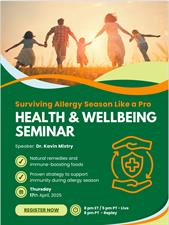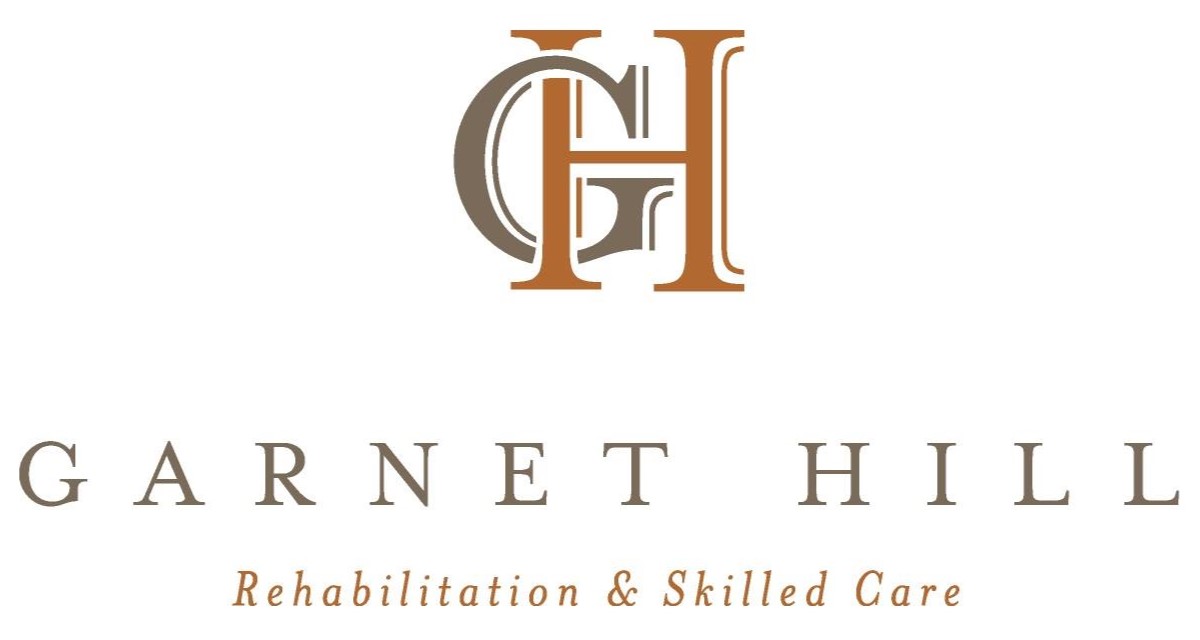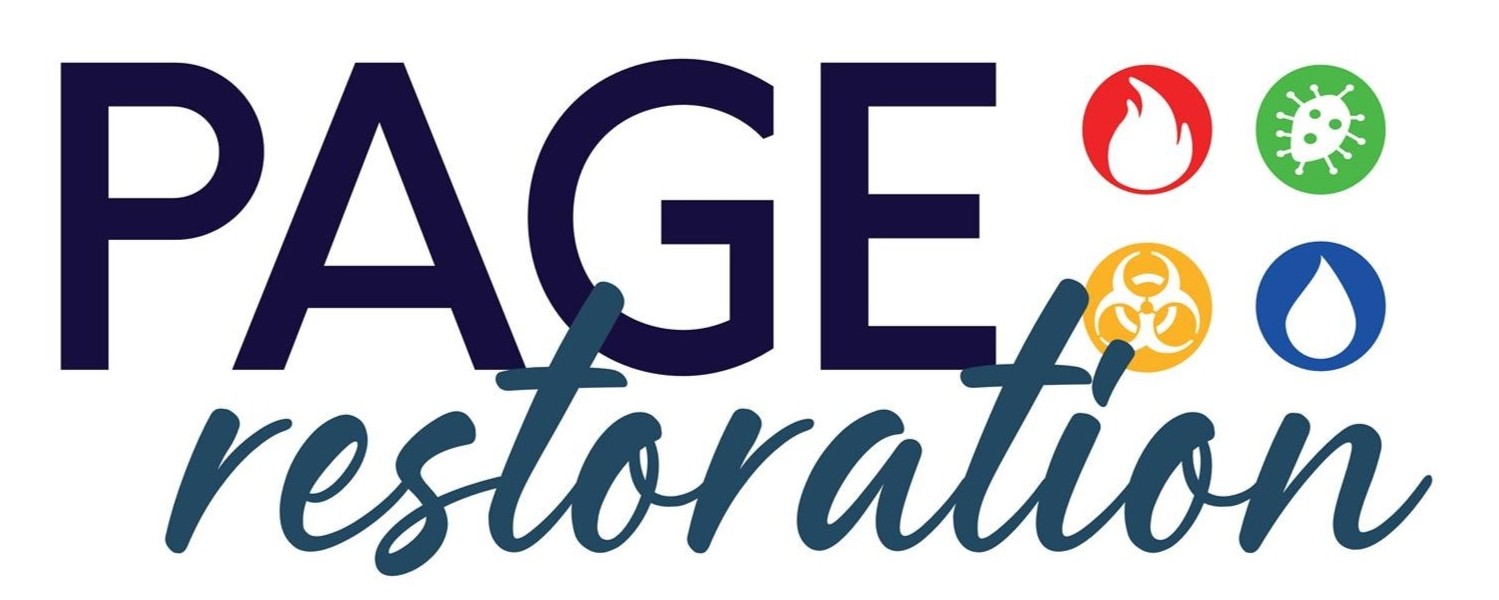HEALTH & WELLBEING SEMINAR: - Surviving Allergy Season like a Pro

Date and Time
Thursday Apr 17, 2025
7:00 PM - 8:00 PM CDT
April 17th, 2025
7 pm - 8 pm CST
Location
Zoom:
Register https://us06web.zoom.us/meeting/register/506Tp3FlRyiOpxbe-tfDgQ
Fees/Admission
Complimentary
Contact Information
Priyanka Bhan Shivpuri
Send Email

Description
Surviving Allergy Season Like a Pro: 7 Latest Science and Natural Fixes
Kavin Mistry MD
Spring is here. The sun is shining, birds are singing, and… your nose is leaking like a faucet. If seasonal allergies have you sneezing, wheezing, and questioning your life choices, you're not alone. Over 50 million Americans suffer from hay fever each year, and traditional allergy medications—while effective—often come with drowsiness, brain fog, or the dreaded antihistamine hangover.
But what if you could combat allergies with science-backed, non-pharmacologic solutions? Here’s the latest research on how to build your body’s defenses against seasonal sniffles—no sedatives required.
1. Strengthen Your Microbiome, Strengthen Your Immunity
Your gut is home to trillions of bacteria that play a key role in immune regulation. Emerging research suggests that an imbalanced microbiome can make allergies worse. Studies show that probiotics—specifically Lactobacillus rhamnosus and Bifidobacterium longum—may help modulate immune response and reduce allergy symptoms.
?? Action Plan: Eat more fermented foods like kimchi, sauerkraut, and kefir, or take a high-quality probiotic supplement.
2. The Unsung Hero: Spanish Needles (Bidens pilosa)
You’ve probably never heard of Spanish Needles, but this under-the-radar herb has potent antihistamine and anti-inflammatory properties. Studies find that Bidens pilosa can inhibit histamine release, helping to curb runny noses and itchy eyes.
?? Action Plan: Look for Spanish Needles in herbal teas or tinctures to naturally support your immune response.
3. Echinacea: Not Just for Colds
You know echinacea as a go-to for immune support, but did you know it also helps with seasonal allergies? A review of clinical studies shows that echinacea can reduce the severity of allergic reactions by modulating inflammatory pathways.
?? Action Plan: Take echinacea extract during peak allergy season to boost your body's ability to handle allergens.
4. Local Honey: Hype or Help?
While the science is mixed, some studies suggest that consuming local honey may act as a natural allergy immunotherapy by exposing your immune system to small amounts of pollen. Over time, this could reduce sensitivity and lessen symptoms.
?? Action Plan: If you want to try it, choose raw, unfiltered honey from local sources and consume a teaspoon daily.
5. Master the Art of Nasal Rinsing
Pollen particles love to camp out in your nasal passages. A simple saline rinse using a neti pot or saline spray can flush out irritants before they trigger a full-blown histamine storm.[6]
?? Action Plan: Use a sterile saline rinse once or twice a day during allergy season to keep nasal passages clear.
6. Quercetin: The Natural Antihistamine
This powerful plant flavonoid, found in onions, apples, and green tea, acts as a natural mast cell stabilizer, preventing histamine from being released in the first place.
?? Action Plan: Eat more quercetin-rich foods or take a supplement during peak allergy months.
7. Reconnect with Nature—Strategically
Allergy sufferers tend to avoid the great outdoors, but research suggests that spending time in nature—especially in microbiome-rich environments like forests—can actually train the immune system to react less aggressively to allergens over time.
?? Action Plan: Get outside, but be smart about it—go for walks after rain (which washes away pollen) and wear sunglasses to keep allergens out of your eyes.
The Takeaway
Allergy season doesn’t have to be a yearly battle of pharmaceuticals versus pollen. By strengthening your microbiome, leveraging herbal allies like Spanish Needles and echinacea, and using simple, science-backed strategies, you can build an immune system that’s more resilient to seasonal allergies.
Are you using any of these strategies? Have a favorite natural allergy hack? Drop a comment below—I’d love to hear your thoughts!


























